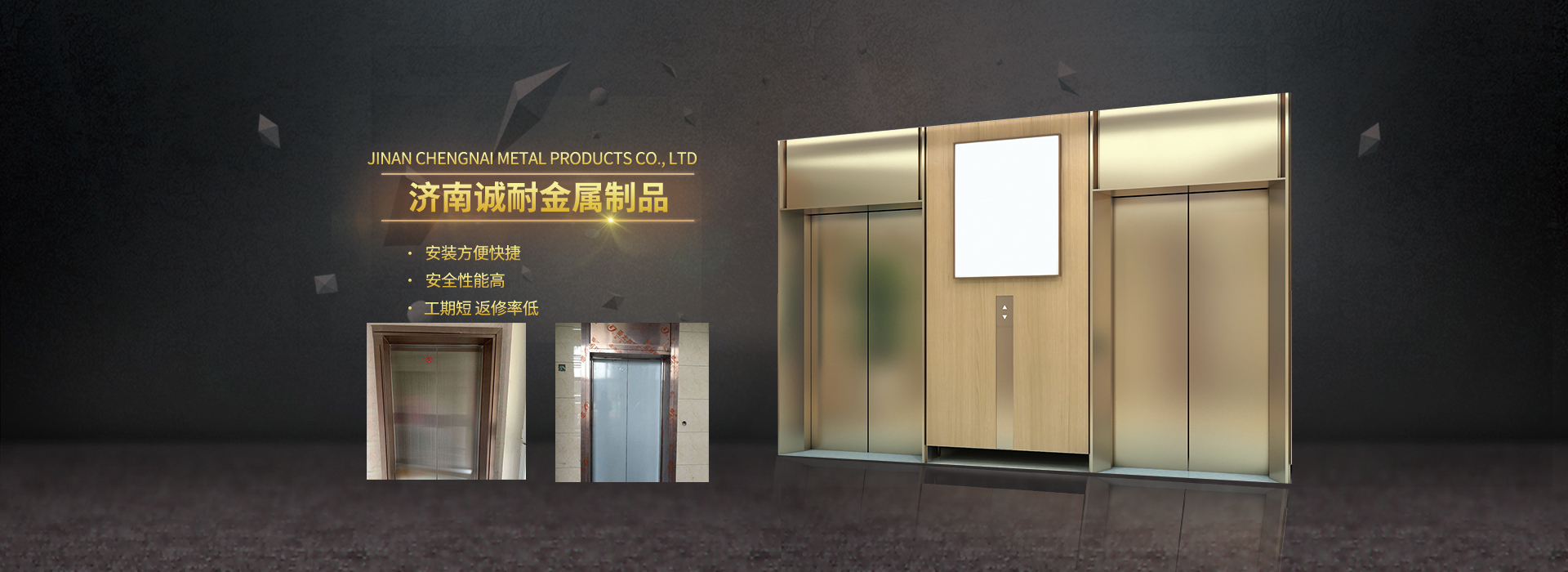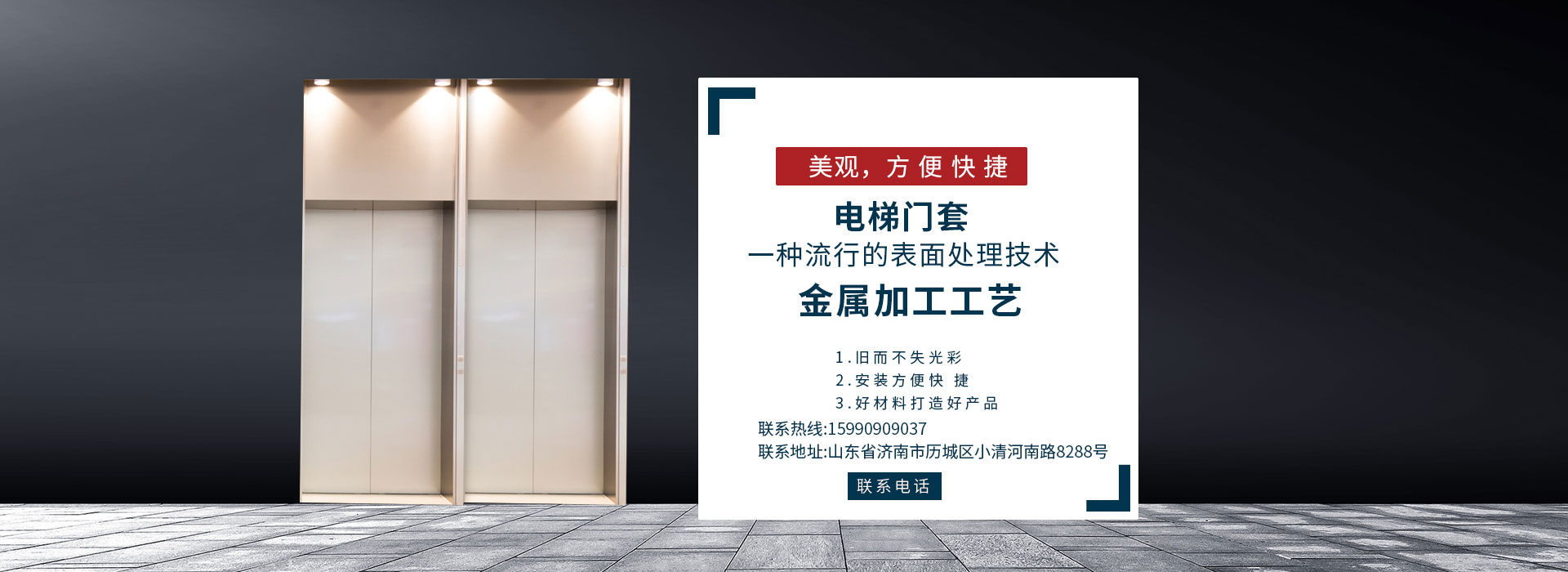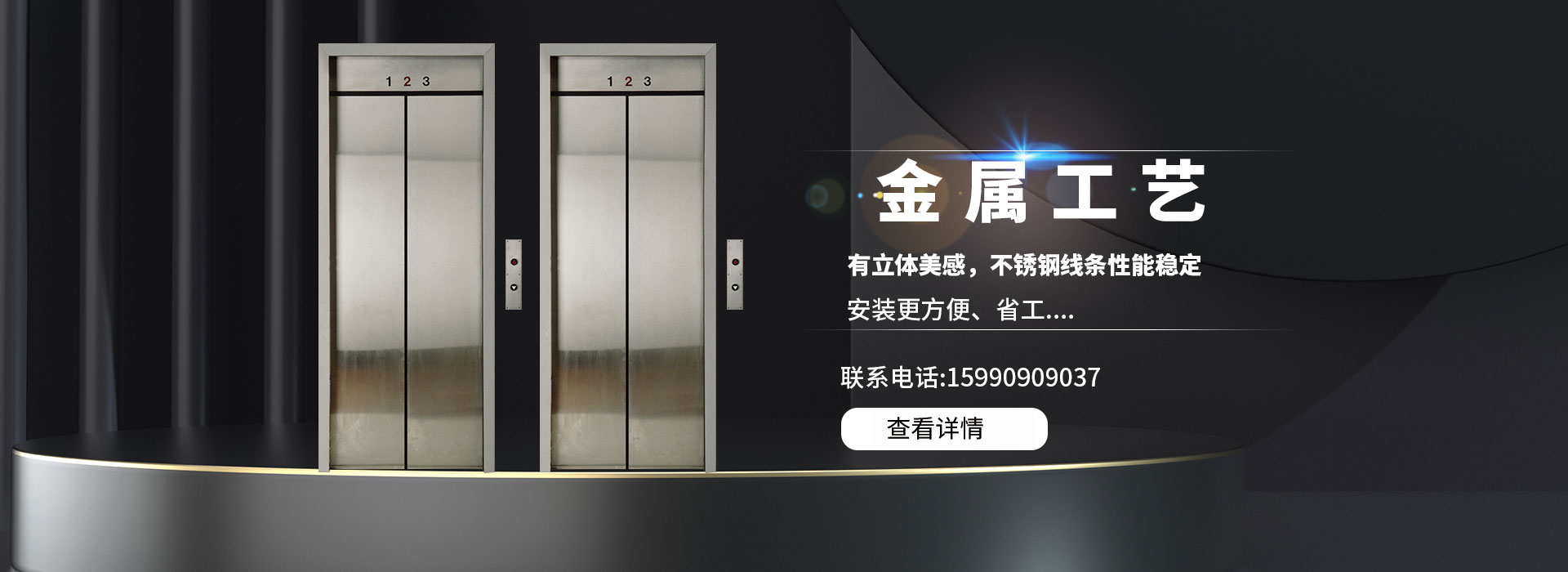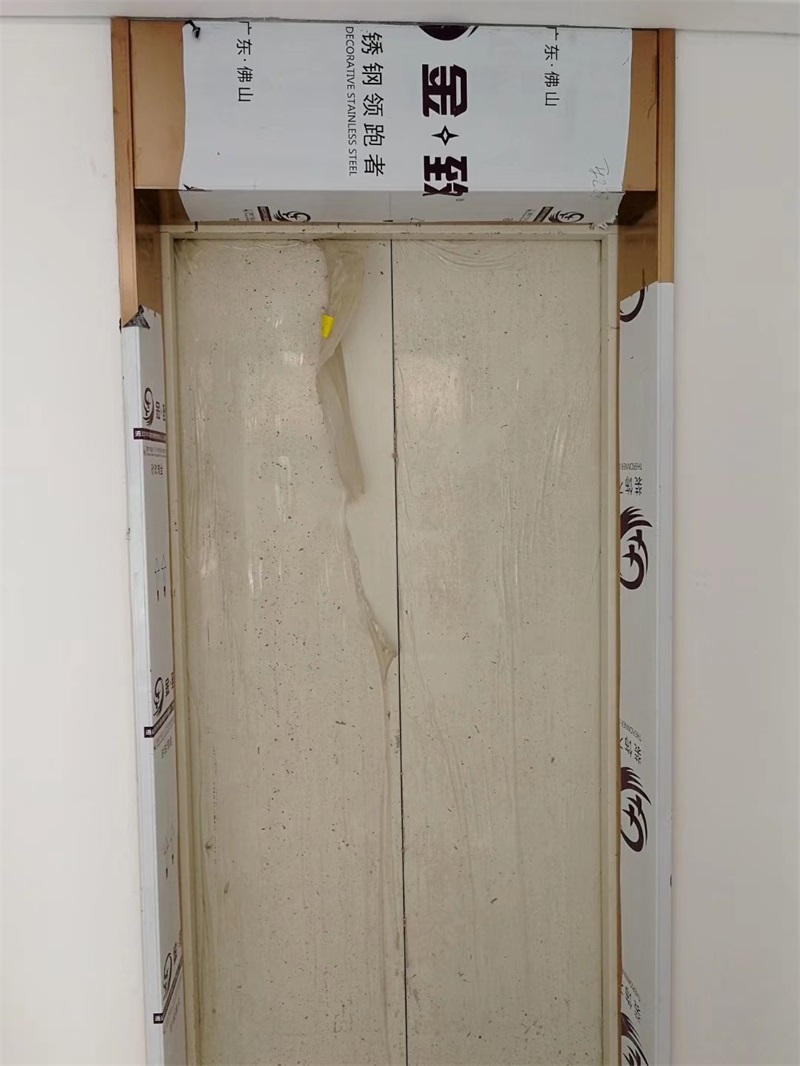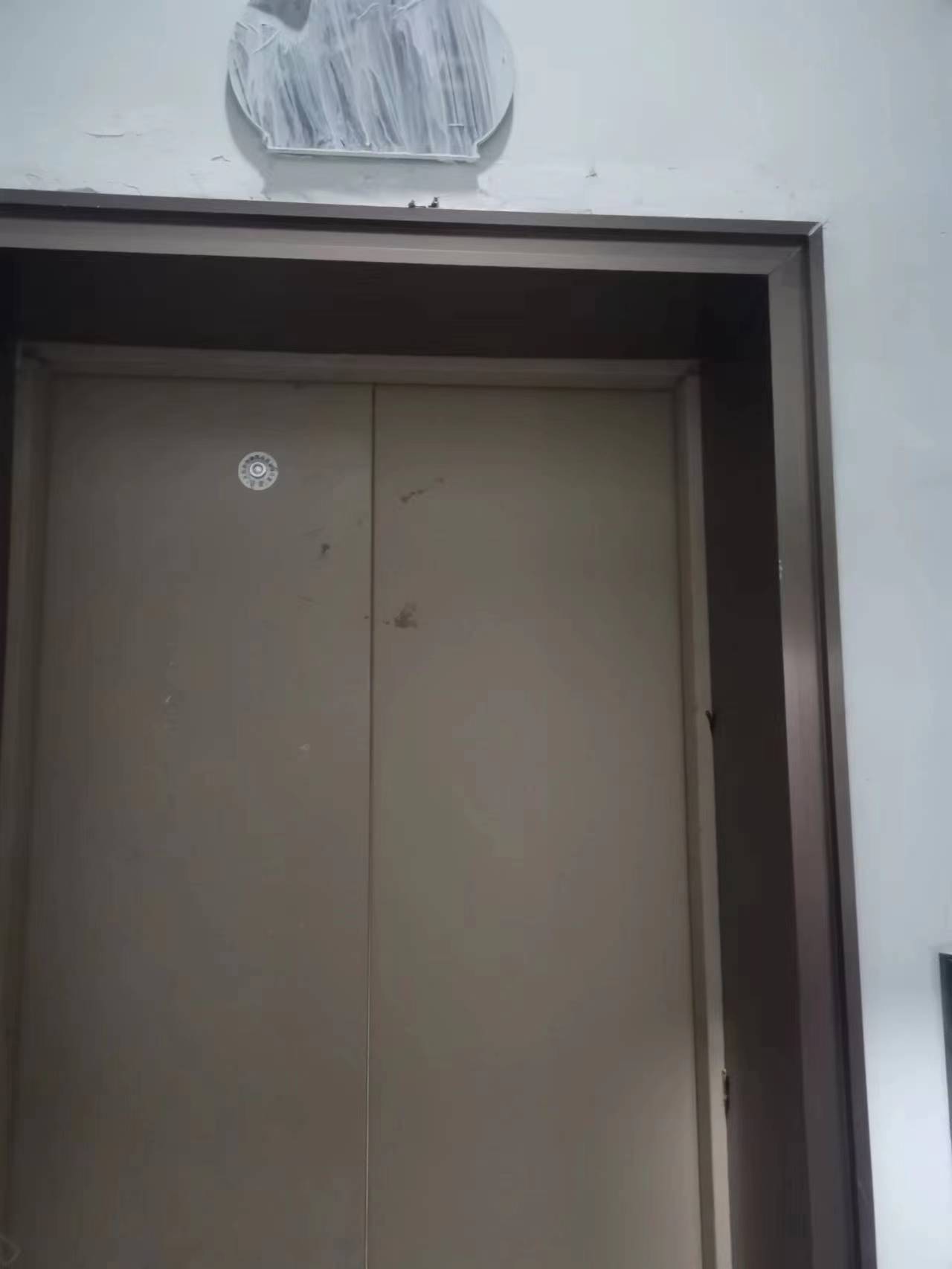不銹鋼門(mén)套的清洗方法有哪些?|
門(mén)框有很多種。不銹鋼門(mén)套具有華麗明亮的視覺(jué)和裝飾性能,營(yíng)造出豪華的氛圍,不僅美觀,而且色彩豐富;它也很容易擦洗,因此對(duì)車門(mén)的損壞也可以減少?,F(xiàn)在這是許多家庭的選擇。我們應(yīng)該如何清潔和維護(hù)不銹鋼門(mén)套?接下來(lái),小編會(huì)給你分享一些深層清潔的方法,希望能對(duì)你有所幫助。
There are many kinds of door frames. Stainless steel door pocket has gorgeous and bright visual and decorative performance, creating a luxurious atmosphere, which is not only beautiful, but also rich in color; It is also easy to scrub, so the damage to the door can also be reduced. Now this is the choice of many families. How should we clean and maintain the stainless steel door pocket? Next, Xiaobian will share some deep cleaning methods with you, hoping to help you.
1、銹斑
1. Rust spot
不銹鋼門(mén)產(chǎn)品或設(shè)備在生產(chǎn)前或生產(chǎn)過(guò)程中有時(shí)會(huì)生銹,表明表面污染嚴(yán)重。設(shè)備投入使用前,一定除銹,完全清理干凈的表面應(yīng)進(jìn)行鐵試驗(yàn)和水試驗(yàn)。
Stainless steel door products or equipment sometimes rust before or during production, indicating serious surface pollution. Before the equipment is put into use, the rust must be removed, and the completely cleaned surface should be subjected to iron test and water test.
2、粉塵
2. Dust
生產(chǎn)通常在多塵的場(chǎng)所進(jìn)行??諝庵薪?jīng)常有大量灰塵,這些灰塵不斷落在設(shè)備表面。它們可以用水或堿性溶液去除。然而,粘性灰塵需要用高壓水或蒸汽清洗。
Production is usually carried out in dusty places. There is often a lot of dust in the air, which constantly falls on the surface of the equipment. They can be removed with water or alkaline solution. However, sticky dust needs to be cleaned with high-pressure water or steam.
3、浮鐵粉或嵌鐵
3. Floating iron powder or embedded iron
在許多表面,游離鐵會(huì)生銹和腐蝕不銹鋼門(mén)。因此,需要將其移除。漂浮的粉末通??梢耘c灰塵一起。有些具有很強(qiáng)的附著力,需要作為預(yù)埋鐵處理。除灰塵外,還有許多表面鐵的來(lái)源,包括用普通碳鋼鋼絲刷清潔的非不銹鋼門(mén)產(chǎn)品,用砂、玻璃珠或其他以前用于普通碳鋼、低合金鋼或鑄鐵件的磨料進(jìn)行噴丸處理,或在不銹鋼門(mén)組件和設(shè)備上研磨。如果不銹鋼門(mén)在下料或吊裝過(guò)程中未加以保護(hù),則工作臺(tái)上的鋼絲繩、吊具和鐵容易嵌入或污染表面。
On many surfaces, free iron will rust and corrode stainless steel doors. Therefore, it needs to be removed. Floating powder can usually be removed together with dust. Some have strong adhesion and need to be treated as embedded iron. In addition to dust, there are many sources of surface iron, including non stainless steel door products cleaned with ordinary carbon steel wire brush, shot blasting with sand, glass beads or other abrasives previously used for ordinary carbon steel, low alloy steel or iron castings, or grinding on stainless steel door components and equipment. If the stainless steel door is not protected during blanking or hoisting, the steel wire rope, lifting appliance and iron on the workbench are easy to be embedded or pollute the surface.
4、劃痕
4. Scratch
為防止工藝油或產(chǎn)品和/或污垢的積聚,需要對(duì)劃痕和其他粗糙表面進(jìn)行機(jī)械清潔。
To prevent the accumulation of process oil or products and / or dirt, mechanical cleaning of scratches and other rough surfaces is required.
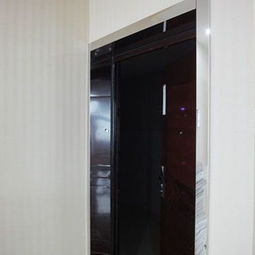

5、熱回收色等氧化層
5. Oxide layer such as heat recovery color
如果不銹鋼門(mén)在焊接或打磨過(guò)程中在空氣中加熱到一定的高溫,則焊縫兩側(cè)、焊縫下表面和焊縫底部都會(huì)出現(xiàn)氧化鉻熱回收色。與氧化保護(hù)膜相比,熱回收顏色更薄,更明顯。顏色取決于厚度,可以在彩虹、藍(lán)色、紫色到淺黃色和棕色中看到。較厚的氧化物通常為黑色。這是由于長(zhǎng)時(shí)間停留在高溫或更高海拔造成的。當(dāng)該氧化層出現(xiàn)時(shí),金屬表面的鉻含量將降低,導(dǎo)致這些區(qū)域的耐蝕性降低。在這種情況下,不僅應(yīng)去除熱回收顏色和其他氧化層,還應(yīng)清潔其下方的貧鉻金屬層。
If the stainless steel door is heated to a certain high temperature in the air during welding or grinding, chrome oxide heat recovery color will appear on both sides of the weld, the lower surface of the weld and the bottom of the weld. Compared with oxidation protective film, the color of heat recovery is thinner and more obvious. The color depends on the thickness and can be seen in rainbow, blue, purple to light yellow and brown. Thicker oxides are usually black. This is caused by staying at high temperature or higher altitude for a long time. When the oxide layer appears, the chromium content on the metal surface will be reduced, resulting in the reduction of corrosion resistance in these areas. In this case, not only should the heat recovery color and other oxide layers be removed, but also the chromium poor metal layer below them should be cleaned.
6、粗磨加工
6. Rough grinding
磨削和機(jī)加工會(huì)導(dǎo)致表面粗糙,留下凹槽、重疊和毛刺等缺陷。每個(gè)缺陷也可能會(huì)將金屬表面損壞到一定深度,因此不可能通過(guò)酸洗、電解拋光或噴丸清理受損的金屬表面。粗糙表面可能是腐蝕和沉積產(chǎn)物的來(lái)源。在重新焊接之前,不允許使用粗磨清理焊接缺陷或去除多余的焊接鋼筋。在后一種情況下,應(yīng)使用細(xì)磨料研磨。
Grinding and machining can lead to rough surfaces, leaving defects such as grooves, overlaps, and burrs. Each defect may also damage the metal surface to a certain depth, so it is impossible to clean the damaged metal surface by pickling, electropolishing or shot peening. Rough surfaces may be the source of corrosion and deposition products. Before re welding, it is not allowed to use rough grinding to clean up welding defects or remove excess welding reinforcement. In the latter case, fine abrasive grinding should be used.
以上就是為大家介紹的有關(guān)鋁合金門(mén)套的詳細(xì)的介紹,希望對(duì)您有所幫助.如果您有什么疑問(wèn)的話,歡迎聯(lián)系我們.我們將以的態(tài)度,為您提供服務(wù).http://www.shsb373.cn
The above is a detailed introduction about aluminum door jambs. I hope it will help you If you have any questions, please contact us We will provide you with professional service http://www.shsb373.cn

